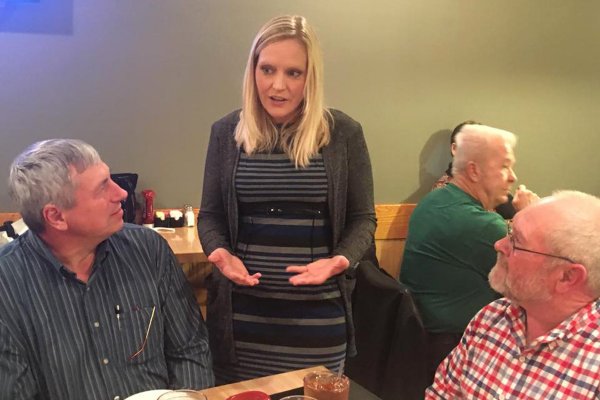By State Sen. Erin Houchin (R-Salem)
John F. Kennedy once said, “In a crisis, be aware of the danger, but recognize the opportunity.” For the last several weeks we have been focused on the crisis part—dealing with the clear and present threat of COVID-19 and the economic impact from the quarantine. Now we are turning to getting the economy reopened, and to developing healthcare resources, including treatments and a vaccine. After this, though, in the longer term, I see opportunity for the Indiana General Assembly to adapt and change.
The Legislature is an institution where custom and ritual are important and strong. We debate great issues. Sometimes those issues are infused with emotion. The custom and ritual work to promote civility in the process, which is vital for reasoned debate. However, those same customs and rituals also promote a static quality to the institution. I’ve only served in the Legislature for six years, but I’ve been there long enough to understand that the Indiana General Assembly looks and operates today a lot like it did fifty years ago.
This pandemic has forced us all to do things differently. It may well be time for the Indiana General Assembly to do things differently, too. In this time of danger, let us recognize the opportunity we have to enhance the transparency, accountability, and reach of the Indiana Legislature. Like many Hoosiers right now, the Legislature can adapt to work remotely. I strongly believe that Indiana Senators and Representatives should gather together to debate and to vote, in person, on the important issues of the day. However, much else of what we do can be done remotely.
Recently, all the Indiana Republican Senators held a video conference call to discuss issues related to the pandemic. In effect, we met remotely. The technology worked well. We can continue to meet by video conference over the next few months and into the next legislative session. There is no reason we couldn’t also meet by video conference to discuss legislation among a smaller group of Senators, or even to have committee meetings this way. Our systems already allow the public to watch live streaming video of our meetings. Those systems can be modified to let the Legislators work remotely, and to let those wishing to testify do so remotely by video as well. We could also utilize technology so Legislators could hold stakeholder meetings remotely to discuss and work on bills. All of this is possible with current technology.
Adopting remote working capabilities for Legislators has many benefits. First, it will allow us to regularly be in our districts more often. When we are in our home communities, we are more accessible, and thereby more accountable, to our constituents. We are also able to learn more easily from our constituents the problems they are facing, and their ideas for solutions. Many of my best ideas for legislation come directly from my constituents. On the flipside, we are less accessible to the lobbyists and special interests. More coffee with constituents and fewer invites for dinner with lobbyists is a net gain to the lawmaking process.
Next, through remote working we can allow more people more access. Many people cannot travel to Indianapolis to testify at committee hearings. More people could testify and participate if they could do so from home or work via video. As anyone who has been to a Legislative Committee meeting can tell you, a lot of time is spent waiting to testify. We could eliminate much of this travel and wait time by implementing a queued video system. In addition, if we had a system that more easily allowed witnesses to testify remotely, we could access a much broader range of expertise on the issues before us. For instance, I carried a bill a few years ago on dyslexia screening that Indiana Congressman Larry Bucshon had particular interest and expertise. I was able to get a special exception made so Congressman Bucshon could testify by video feed since he was in Washington D.C. at the time. It worked very well, and allowed the committee to hear from an important voice on the topic. I was also able to arrange for a constituent to testify on a bill via Skype because he was unable to leave his sick wife’s bedside. This can be common practice, and not a special exception.
We need to tend to the current crisis, as we are. But as Kennedy said, let’s be aware of the danger but not fail to recognize the opportunity. On the other side of this, we can have a more transparent, accountable and accessible Indiana General Assembly.
Erin Houchin represents Senate District 47, which includes all of Crawford, Harrison, Orange, Perry and Washington counties, and the eastern half of Dubois County. She lives in Salem with her husband and their three children.










